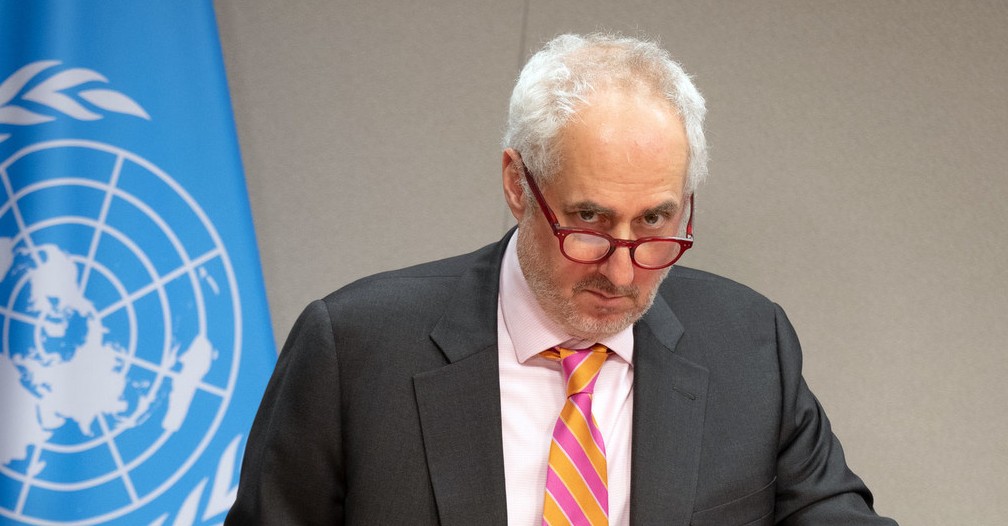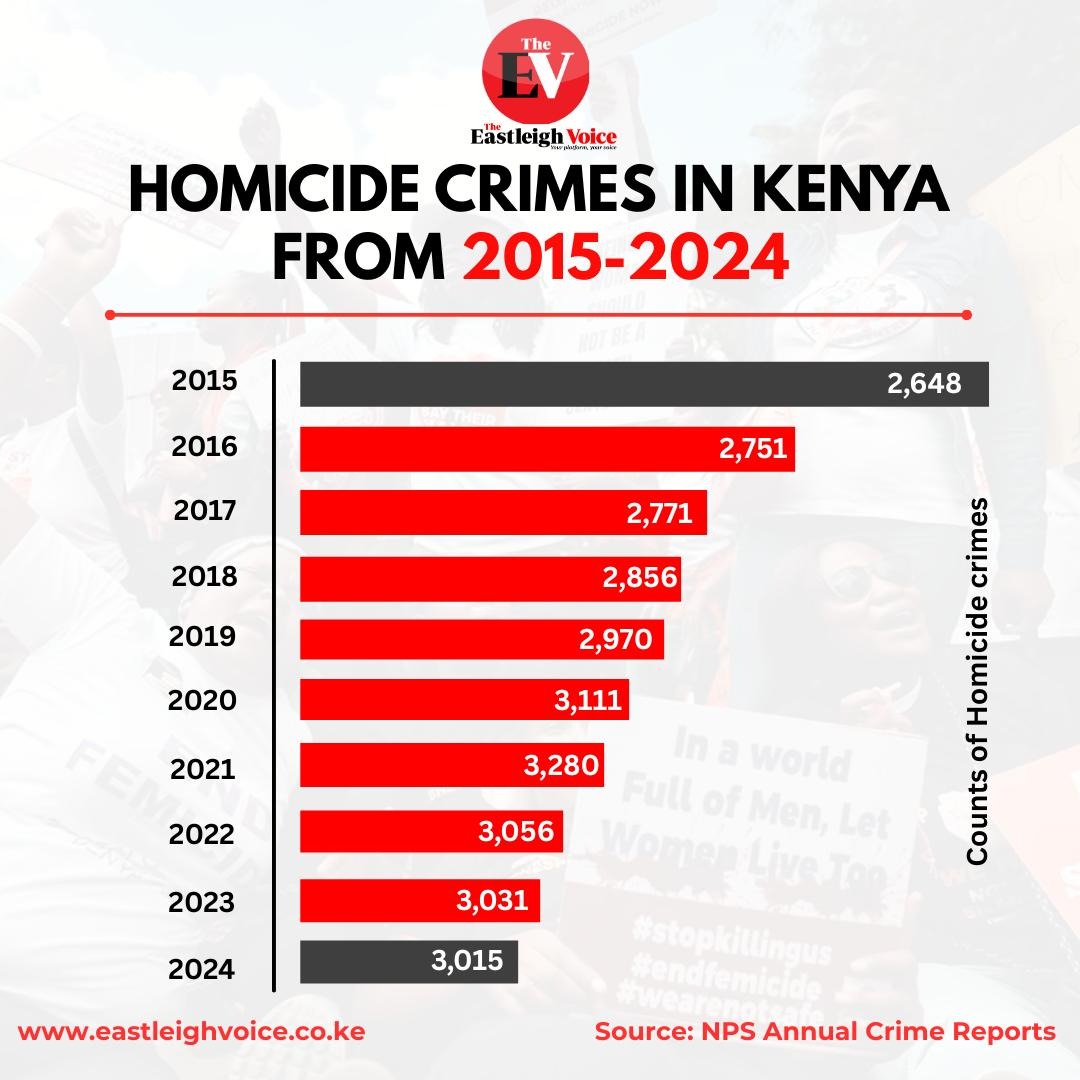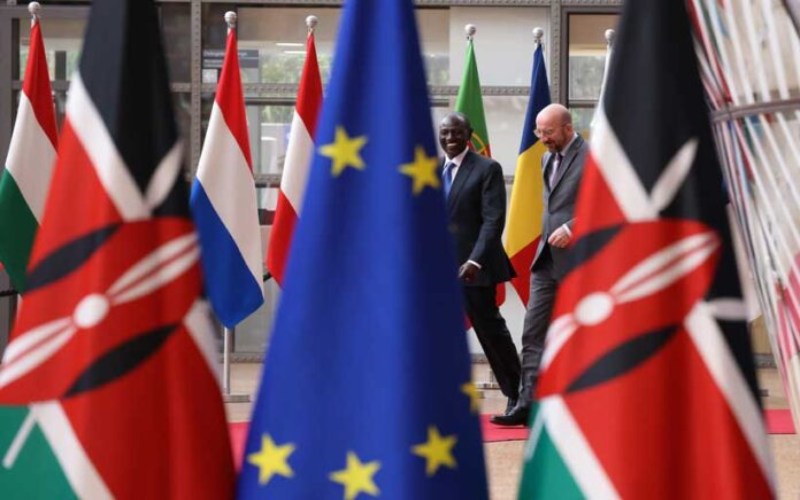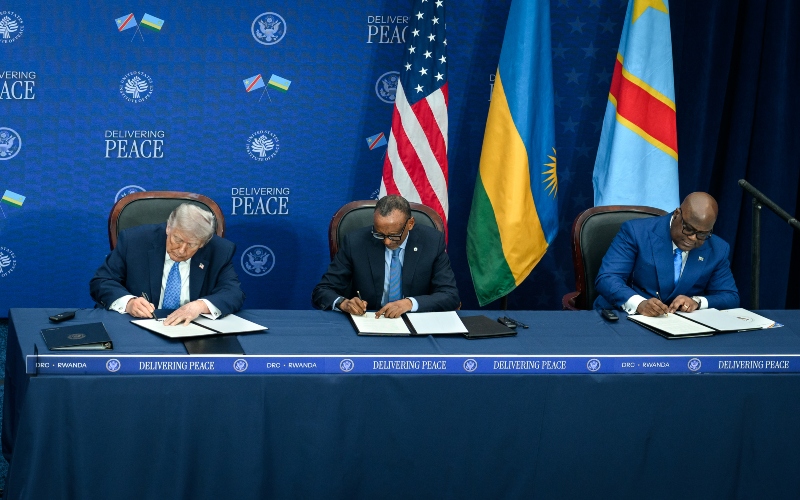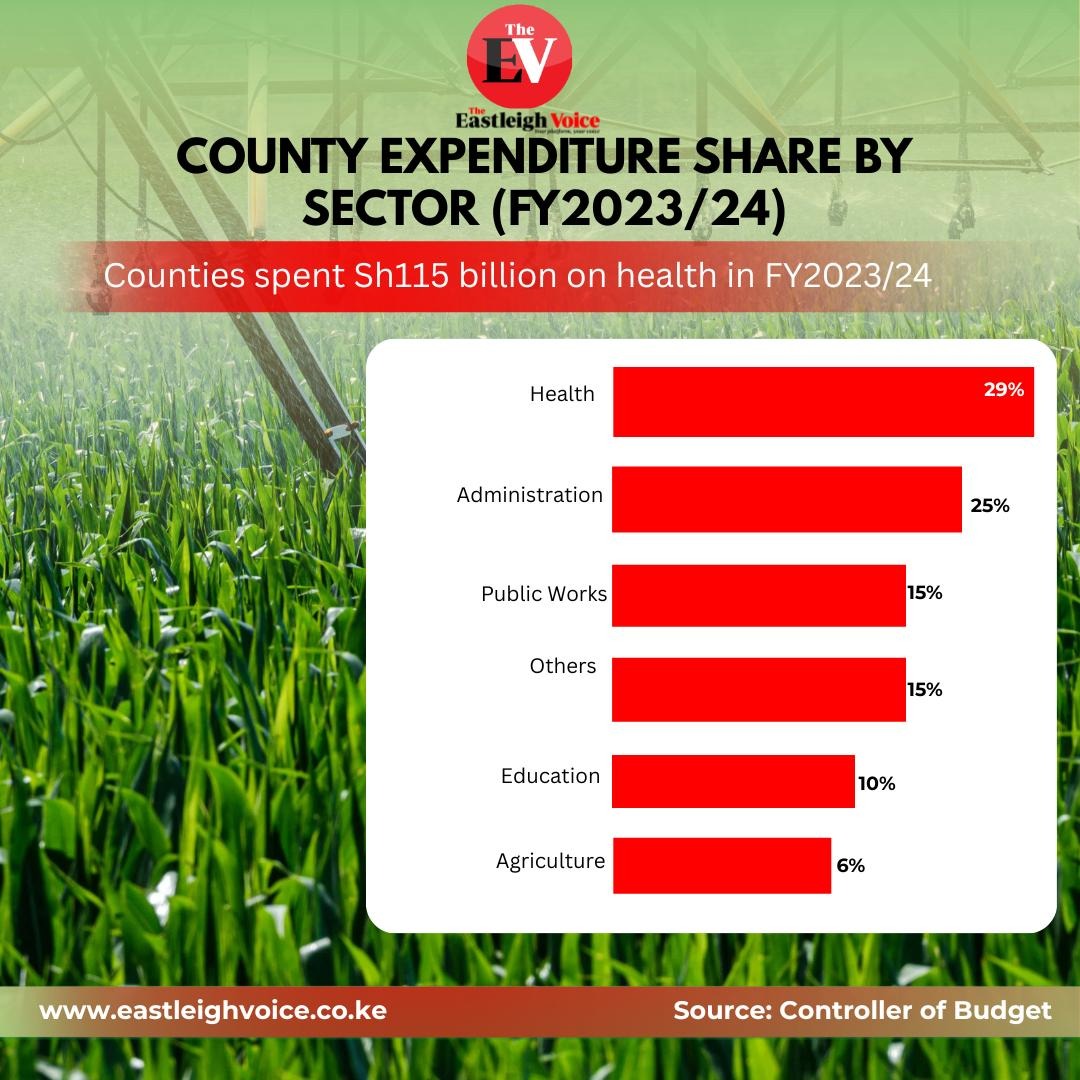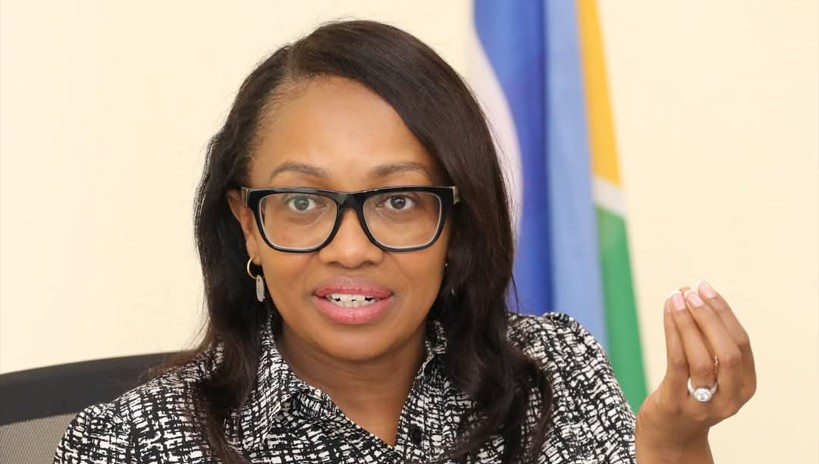Counties to get Sh9bn to help local communities tackle climate change impacts
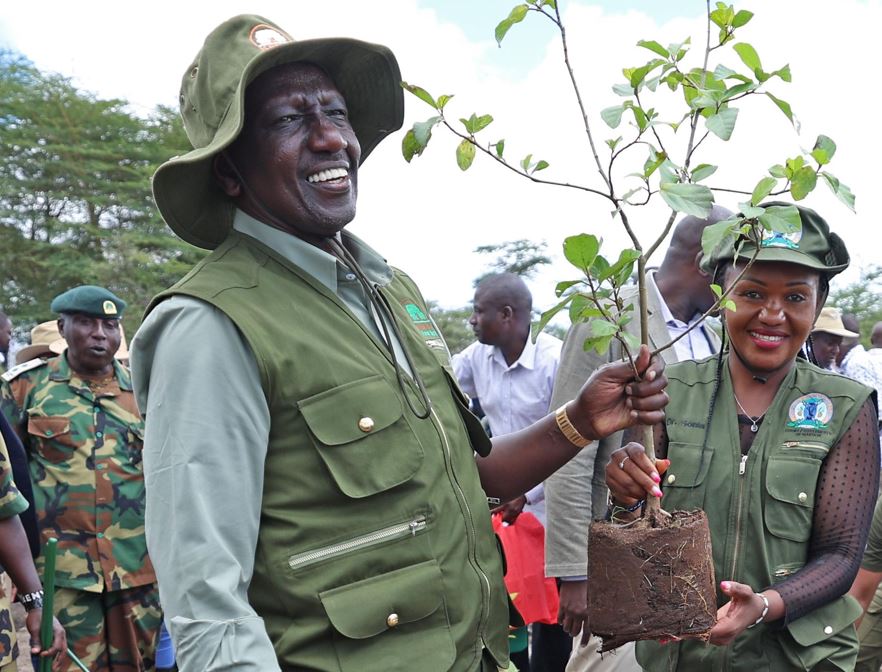
The Treasury said on Thursday that the funds will be distributed over five years through the Financing Locally-Led Climate Action (FLLoCA) programme.
The National Treasury will give Sh9 billion to counties to be used in tackling the impacts of climate change.
The Treasury said on Thursday that the funds will be distributed over five years through the Financing Locally-Led Climate Action (FLLoCA) programme.
More To Read
- 2025 set for second-hottest year on record
- Nyeri climate change activist Truphena Muthoni attempts 72-hour tree-hugging record
- UN’s Guterres vows to push for Palestine two-state solution, says he will ‘not shut up’
- Green economy now second-fastest global growth frontier, value hits Sh646.4 trillion - report
- Supporting Africa’s drylands: Insights from the pastoralists who call them home
- Rwanda Cabinet approves reforms on transport, currency, climate
This information was disclosed by the head of the Climate Finance and Green Economy Unit and FLLoCA Programme Coordinator at the National Treasury Peter Odhengo at the launch of the "Climate Change Impacts in Kenya" report by the Kenya Meteorological Department.
"We met our end of the bargain during the Africa Climate Summit, and today we are happy that local communities have access to this money," he said.
The first instalment of Sh1.1 billion for the County Climate Support Grant was released earlier this year, followed by the second instalment of Sh7.3 billion to 45 counties in June.
Odhengo said each county has been allocated an average of Sh100 million.
The Treasury is seeking to mobilise further funds from the private sector, with plans to secure an additional $700 million (Sh93 billion) for climate adaptation through the Senate’s approval.
The Meteorological Department's report underscores the economic impacts of climate change, warning that without action, the country could lose between two to three per cent of its GDP.
Initially underestimated, the severity of climate change has become evident through increased occurrences of drought and floods, leading to considerable economic losses.
Odhengo explained that in collaboration with the Ministry of Environment, the Treasury had by 2010 developed a framework to establish climate financing and green economy initiatives, aiming to coordinate the mobilisation of climate financing on a larger scale.
By 2016, Sh241 billion had been allocated to climate change financing, with over 70 per cent directed towards mitigation and green energy. However, this allocation was later viewed as a misallocation of resources.
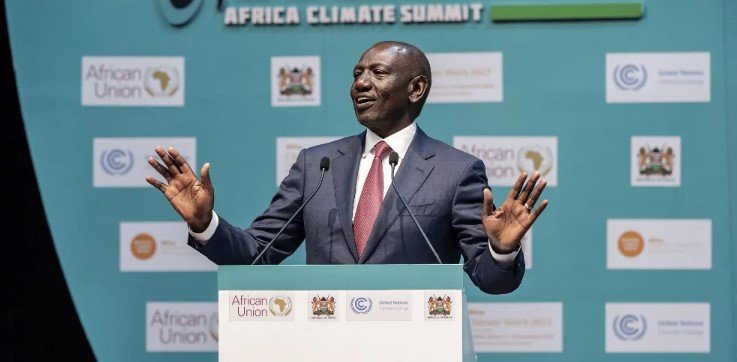 President William Ruto speaks at the Africa Climate Summit in Nairobi in September 2023. (Photo: PCS)
President William Ruto speaks at the Africa Climate Summit in Nairobi in September 2023. (Photo: PCS)President William Ruto speaks at the Africa Climate Summit in Nairobi in September 2023. (Photo: PCS)
Climate-related disasters
Dr Ahmed Idris, the Secretary-General of the Kenya Red Cross Society, who also attended the launch highlighted the growing challenges posed by climate impacts, noting a three per cent increase in climate-related disasters in Kenya.
"Hundreds of thousands of families are currently seeking resources to rebuild their homes destroyed by previous floods. This reality forces them to spend more of their disposable income on recovery activities, reducing their livelihood activities and income," he said.
Ahmed also noted that despite advancements in weather forecasting, there is a lack of resources for pre-emptive responses to climate emergencies.
"In Kenya, we are doing well with weather forecasts from the Meteorological Department. However, we lack the resources to respond to emergencies before they happen. We often support communities after they have already been affected," he said.
Regarding global funding, Ahmed said Kenya requires $65 million (Sh8 billion) for climate adaptation between 2020 and 2030.
He pointed out that the promise of $600 billion (Sh79 trillion) from the global community for developing countries between 2020 and 2025 has not been fulfilled, leaving limited resources to support communities facing climate emergencies.
"More than 70 per cent of climate finance funding goes into mitigation measures, especially green energy. While this is good, it leaves our communities more vulnerable to climate impacts. We need to reverse this trend and allocate more resources to adaptation," Ahmed said.
Dr Festus Ng'eno, the Principal Secretary for Environment, Climate Change, and Forestry, emphasised the importance of equity in climate initiatives.
"It is crucial to prioritise equity in our climate initiatives. There is a need to increase funding for research that contextualises global model outputs and sector-specific costs of climate impacts," he said.
President William Ruto has been on the frontline championing Climate change.
In March this year, Ruto asked the Kenya Defence Forces (KDF) to help the country tackle the climate change phenomenon. He noted that climate change is the biggest threat to the country's development and prosperity.
The head of state said he was confident that the military was up to the task of combating climate change.
"I ask KDF to lead the way by providing mechanisms, in collaboration with the Ministry of Environment, of achieving the 15 billion tree planting programme," Ruto said.
Top Stories Today
